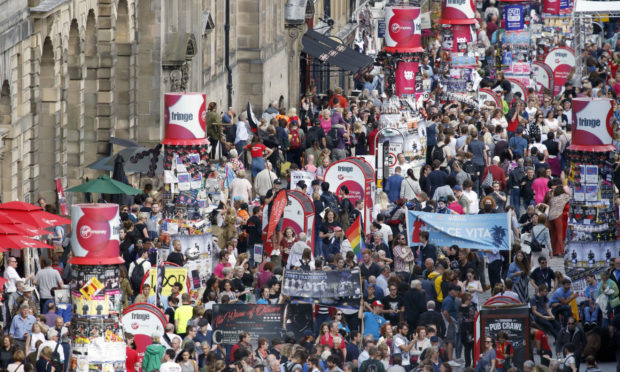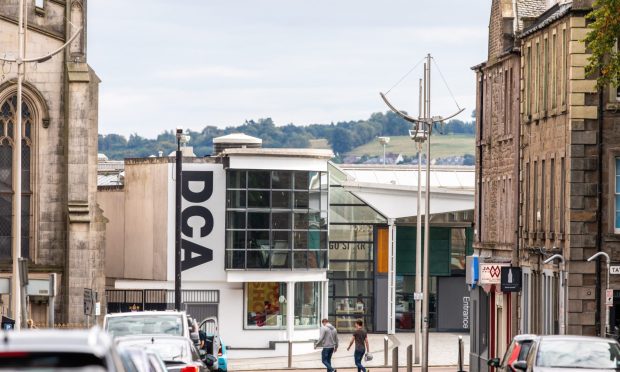August 22 1960 saw a big change. Sixty years ago the comedy revue Beyond The Fringe opened in Edinburgh.
It started the boom in comedy as a middle-class profession. It also marked the real beginning of the world’s largest arts festival, offering something beyond classical music in the summer festival.
More importantly, it drew the line between one generation and the next. Between those who had fought in the war, knew the deprivations of the 1930s, and those who would shape the modern world.
It feels as if a similar moment is happening now. The stupidity and selfishness of my generation and before is being rejected by the young, and on good grounds. They feel betrayed, let down, forgotten.
Beyond the Fringe mocked the assumptions of a deferential Britain. But it did more, it questioned the legitimacy of the elders. In the most famous sketch, Peter Cook’s general ask Jonathan Miller’s soldier Perkins to make a sacrifice.
“Perkins, I want you to lay down your life. We need a futile gesture at this stage in the war.”
The last great triumph of the British Empire, victory against Hitler, was lampooned. It must have felt shocking at the time. It made the audience roar with laughter.
It came alongside big changes – the birth of disposable income, the beginning of the property owning democracy, the Pill. We have all been living in the consequences of that decade till now.
Another generation is growing up distrustful of its elders, mocking their deference to sexism and racism, impatient with a education and economic system which plays them for suckers.
The young have been raised like no other generation before them. New technology, new ways of connecting, intolerance with old prejudice, the end of late 20th Century economic growth, the impossibility of jointing the property owning democracy. Such a shift has not occurred since the post war years.
Already we see new models emerging – the parent/child family model dying as birth rates plummet, new sexual arrangements flourishing, a rejection of the old work patterns. My daughter’s world is as different to my youth as Beyond the Fringes’ was to their fathers.
Thankfully we haven’t yet given our young a war, but we have placed them in threat. The horror of climate change, the tsunami of debt, the deadly virus.
Covid is both metaphor for this change, and the driver of it. A crisis made worse by a generation out of touch with the young. If you were 21 today, you’d be fuming at how your future has been managed.
We tell our young they must get exams, but reveal the entire process to be a game of percentages and guess work. They must get those exams to go to university, knowing fine well the value of a degree has declined. To get this paper, they must go into debt, as if to prepare them for the rest of their economic lives.
They must get the degree to get a job, knowing that the age of full employment is ending as automation takes over. A job will make them happy, knowing modern life sends record numbers into medication.
The job will pay for a house, made to tiny proportions and costing a ransom, that will trap them into a life of serving banks. A house to become a home, knowing our sense of what a family is has long moved beyond the confines of the kitchen table and the 2.4 kids From that home, a world of stuff to be admired and acquired, on the never never, because it will make you beautiful.
This journey recorded in a thousand selfies, a splatter of emojis and a hashtag, so that private American companies can own everything about your personality, and sell it back to you as if this makes you whole.
Cancelling exams showed they were not the be all and end all, screwing up schools return showed ministers were not competent, while the grades fiasco destroys any last dignity of government. And all by a social model which no longer pretends tomorrow will be better, or that wealth is shared, or even that opportunity is equal.
We are in revolutionary times, and thank goodness for that. The young must rebel to make sense of it all. There maybe some violence in this change, but mainly it will be like the great social shift of the 1960s, when people just stopped living as before and shaped something different. What this means for politics is profound.
The power held by elderly voters will be challenged, the policies which benefit the old over the young will be questioned. As Western democratic politics crumbles, new ways of finding representation will emerge. And thank goodness for that too, as we can not go on electing Boris and Donald and expect things to improve.
It is 60 years since Beyond the Fringe, and the Edinburgh Festival has been stopped by the virus, possibly to never return quite as it was. Covid has taken the global platform and mocked the elders . We have asked for futile gestures from the young, and they are starting to laugh in our faces.










